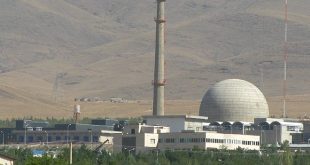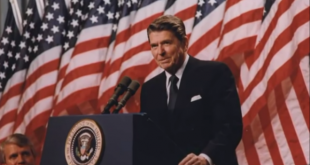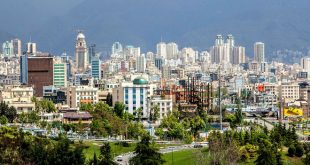 Weeks have now passed since black teen Michael Brown was killed by white police officer Darren Wilson in the small town of Ferguson, Missouri. That night, a candlelight vigil to honor Brown became violent, with looting and vandalizing of local businesses resulting in several arrests. Over the next days, numerous outsiders, from national media organizations to groups such as the New Black Panther Party and the Ku Klux Klan, descended on Ferguson. Chaos escalated, and Governor Nixon ordered the National Guard to help restore calm. The Justice Department is conducting an ongoing investigation into the Ferguson police force for possible misconduct and discrimination in Brown’s death.
Weeks have now passed since black teen Michael Brown was killed by white police officer Darren Wilson in the small town of Ferguson, Missouri. That night, a candlelight vigil to honor Brown became violent, with looting and vandalizing of local businesses resulting in several arrests. Over the next days, numerous outsiders, from national media organizations to groups such as the New Black Panther Party and the Ku Klux Klan, descended on Ferguson. Chaos escalated, and Governor Nixon ordered the National Guard to help restore calm. The Justice Department is conducting an ongoing investigation into the Ferguson police force for possible misconduct and discrimination in Brown’s death.
Although we are still learning more about the events surrounding Brown’s death, in the aftermath there is much we can learn about our country’s health as it relates to the issue of race. While the events in Ferguson were certainly unsettling, we should remember that our country has survived much worse. In 1965, the Watts riots in Los Angeles left 34 dead. In 1967, two similar riots in Detroit and Newark saw a combined 69 dead and thousands more injured. More recently, 53 were killed in the 1992 Los Angeles riots in response to the acquittal of the policemen who were videotaped beating Rodney King.
One of the most important lessons of Ferguson is that racial harmony is fragile. While the overwhelming majority of Americans long to live together peacefully, there are unscrupulous individuals and groups that have a vested interest in fomenting racial tension. It now seems clear that most of the local protesters were peacefully exercising their constitutional rights, while outside troublemakers took advantage of a tragic situation. CNN contributor Marc Lamont Hill noted, “There is a small group of people who are doing something different and out-of-step from everyone else. They’re out-of-towners. The ones [in that group that] I spoke to are actually from Oakland. I saw them last night past curfew. I saw them this morning. They are the ones who initiated violence.”
The aftermath of Brown’s shooting also reminds us that the media has tremendous power for both good and ill in a situation like Ferguson. Sensationalistic reporting and jumping to conclusions before all the facts have come out may boost ratings, but they can also agitate unrest and endanger individuals who are condemned in news reports before they have had their day in court. Responsible members of the media who were willing to admit what they did not know were few and far between.
Furthermore, politicians are increasingly divided into two camps: those who want to ignore America’s racial past and those who refuse to move on. Responsible leaders must condemn troublemakers while empathizing with peaceful protestors. They must also remind everyone that looting local businesses and other lawless behavior hurts the community in which the riots occur, regardless of the demographics of the business owners themselves.
Ferguson also reminds us that while ethical law enforcement personnel need our support regardless of race, it is helpful if the local police force shares demographic characteristics with the communities they are charged with policing. We all know by now that Ferguson is nearly 70 percent black, while having only three black police officers. Conscientious efforts to achieve a more balanced police force can help build trust between community members and law enforcement in the future. Yet we cannot become so captive to political correctness that police officers live in constant fear of accusations of racism. People ignorant of world history will forever try to portray America’s racial sins and struggles as unique. But what is unusual about America is not that we have racial strife in our past or present, but that we have had so much success as a multiracial society that is both peaceful and free.
The local Christian church community maybe our greatest first wall against racially based riots. In places like Washington, DC, the region is ripe for violence. Many people feel overlooked, angry, and rejected. Fortunately, there is a strong faith community made up of Baptists, Catholics, Pentecostals, and every other denomination you can think of. The question is will the church be a force of peace and love? In such situations, the church should lead political and community leaders to avoid rushing to judgment and instead encourage patience and composure. Moving forward in racial reconciliation and understanding is absolutely vital to our nation’s future health and prosperity.
 Bishop Harry Jackson is chairman of the High Impact Leadership Coalition and senior pastor of Hope Christian Church in Beltsville, MD.
Bishop Harry Jackson is chairman of the High Impact Leadership Coalition and senior pastor of Hope Christian Church in Beltsville, MD.
 Black Community News News and Commentary for Christians
Black Community News News and Commentary for Christians



